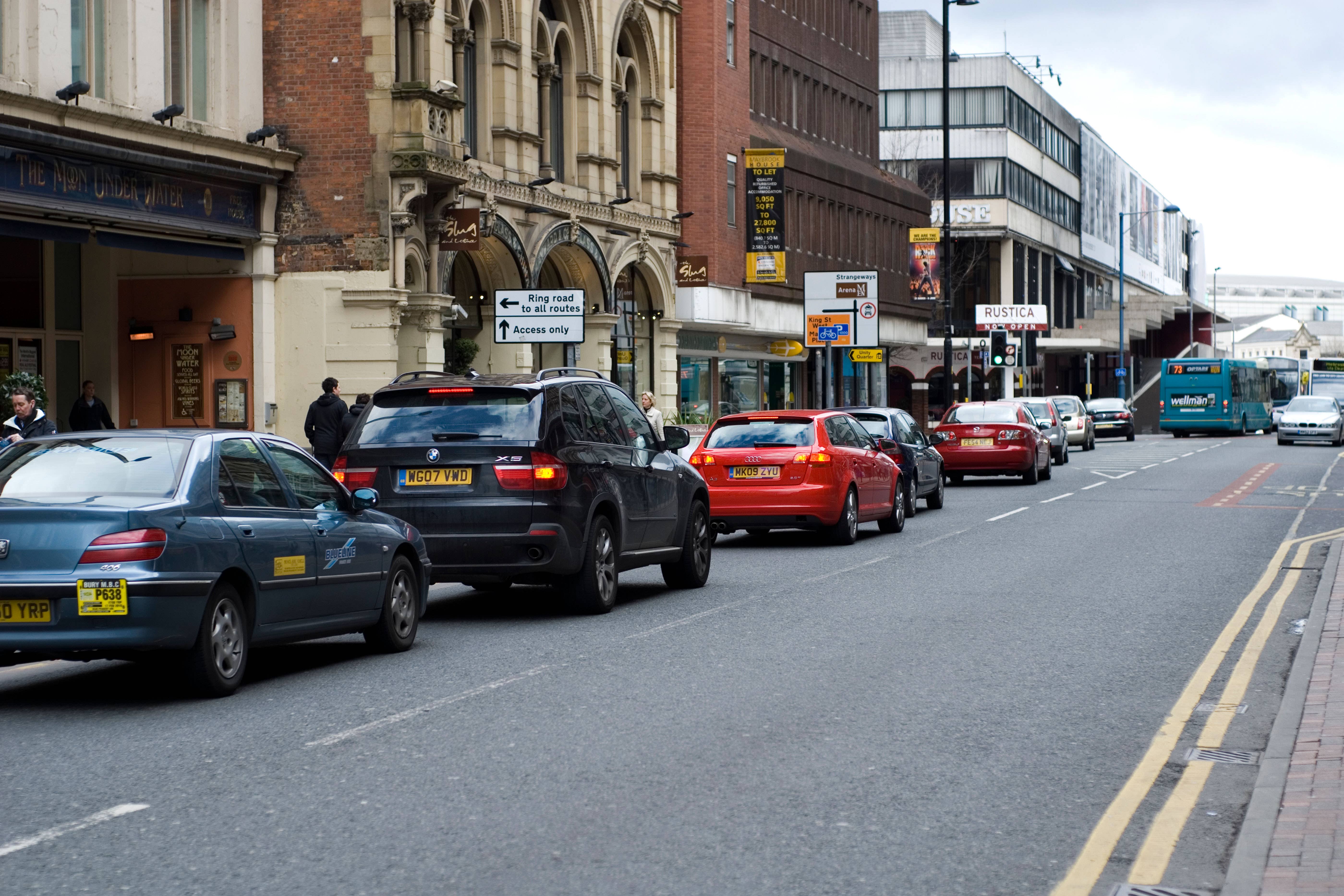British commuters still prefer cars to public transport as UK cities lag behind Europe, study finds
Study estimates that if Liverpool were more like Leipzig there would 33,000 fewer workers commuting by car or taxi

Public transport commuting levels in Britain’s large cities outside London lag well behind European counterparts, new research shows.
A report by think tank Centre for Cities said the number of people travelling to work on buses, trains or trams in Britain’s major urban areas would need to double to catch up with those on the continent.
The analysis found that the proportion of residents of Manchester and Birmingham who commute by public transport is 16 per cent and 18 per cent respectively.
This is in contrast with Hamburg in Germany (40 per cent) and Lyon in France (33 per cent), cities with similar population sizes.
Other UK cities with relatively low public transport ridership for journeys to work are Sheffield (16 per cent), Nottingham (17 per cent) and Glasgow (23 per cent), the report highlighted.
Researchers stated that the gap is due to smaller transport networks and less dense residential neighbourhoods among big cities in the UK.
We need to look at different policy measures from around the world, look at how they are funded, look at where we can bring in extra revenues, and do that in ways that also help us invest in our public transport networks for the long-term
It found evidence showing there are fewer car journeys in large European cities because of their greater reliance on public transport.
The study calculated that if Liverpool were to perform like the comparable city of Leipzig, Germany, there would be 33,000 fewer workers commuting by car or taxi, a reduction of 20% per cent.
What you see in other big cities around the world is more people take public transport and the network is serving its purpose in the regional economy
Centre for Cities made a series of recommendations to boost public transport commuting, including increasing the density of homes near public transport stops, bringing responsibility for running a city’s public transport services under one body similar to Transport for London, and providing cities with transport-related revenue-raising powers such as congestion charging or workplace parking levies.
The think tank’s chief executive, Andrew Carter, said: “What these policy recommendations are aiming for is finding that extra gear so we can bring more people into our city centres during working hours, quicker and preferably cheaper too.
“In order to get there and find that extra gear, we need to look at different policy measures from around the world, look at how they are funded, look at where we can bring in extra revenues, and do that in ways that also help us invest in our public transport networks for the long-term.
“What you see in other big cities around the world is more people take public transport and the network is serving its purpose in the regional economy: large cities can use their space more efficiently and a greater number of workers can reach the city centre to access opportunities there.”
Any successful public transport system needs to blend clear thinking from a central transport authority with the entrepreneurial flair of private operators
Miguel Parras, group chief executive of transport operator Go-Ahead, which was a partner in publishing the report, said: “It’s vital that modern, dynamic cities encourage more people onto public transport if they’re to tackle congestion and pollution.
“Easy-to-navigate transport hubs, bus priority measures and better planning around stations can make a big difference, as the Centre for Cities’ report points out.
“Any successful public transport system needs to blend clear thinking from a central transport authority with the entrepreneurial flair of private operators.”
RAC spokesman Rod Dennis said: “It’s little wonder that drivers in the UK depend on their cars so much considering how expensive, unreliable and in some cases non-existent public transport alternatives can be.
“An increasing proportion of drivers – as many as eight in 10 – tell us they would find it very difficult being without a car, with just 8 per cent agreeing that public transport provides an attractive alternative to driving.”
Subscribe to Independent Premium to bookmark this article
Want to bookmark your favourite articles and stories to read or reference later? Start your Independent Premium subscription today.
